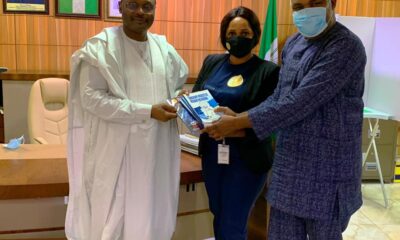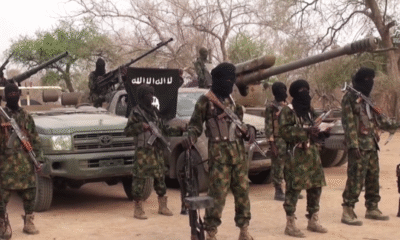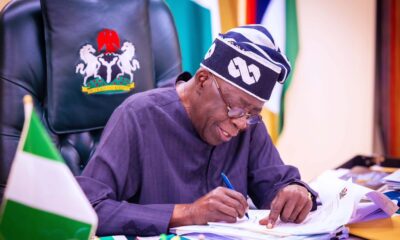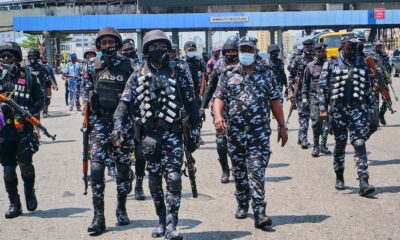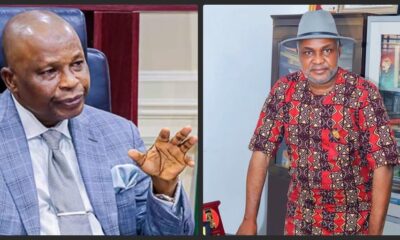News
BRIDGING THE GAP BETWEEN KHAKI AND BABANRIGA- By Emmanuel Onwubiko
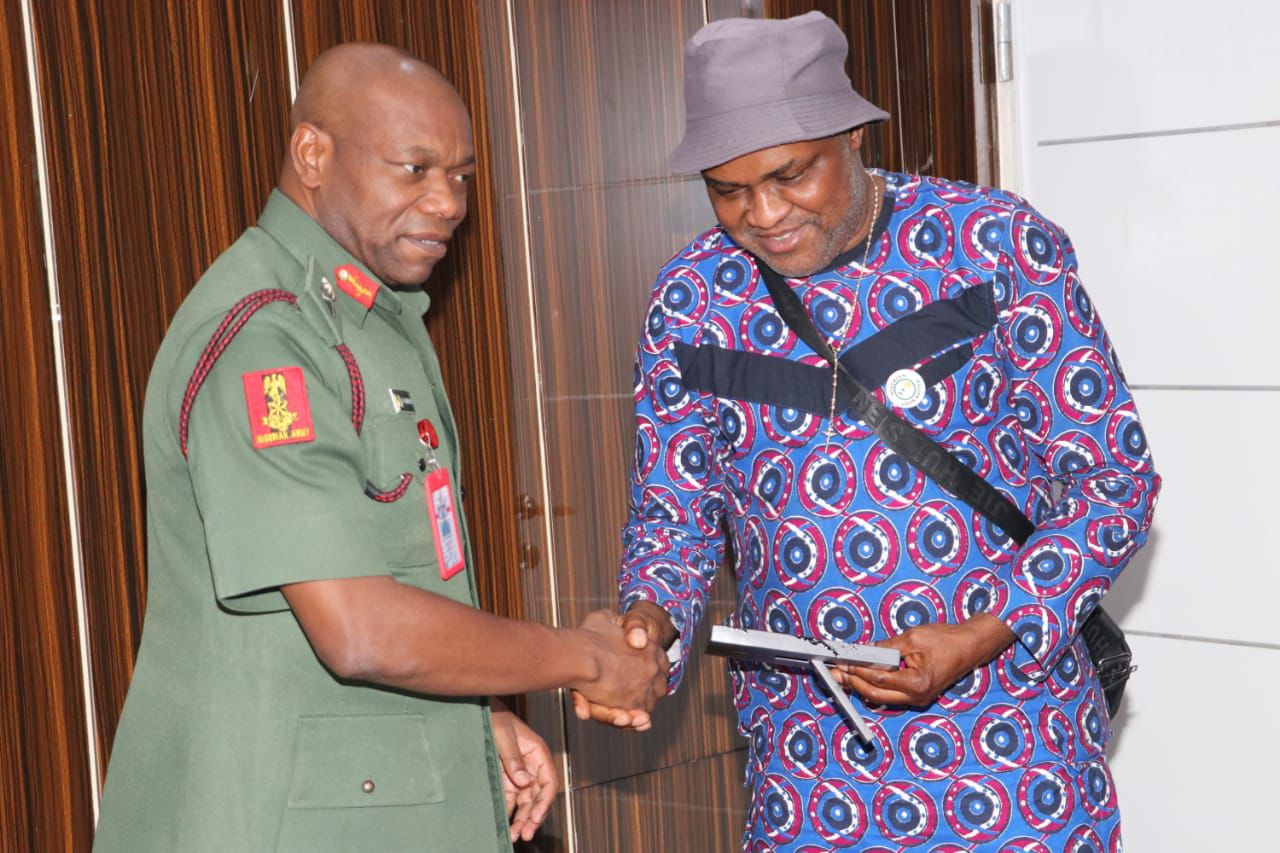
We in our organisation (HUMAN RIGHTS WRITERS ASSOCIATION OF NIGERIA) wrote to the office of Chief of Civil military relations, Nigerian Army, Maj.General GU Chibuisi, who has just been appointed to that position by the Chief of Army staff, and he didn’t hesitate to ask us to come on Tuesday of this week.
Getting to his exquisitely arranged office, we were well received and the meeting proceeded as scheduled just as discussion centred around the strategic essence of bridging the gap between the military and the civilians.
Often the disagreements, conflicts that do come up during interfaces between the military and the rest of us who are civilians (not bloody civilians) and the military are often generated by the absence of any sort of harmonious understanding that every citizen of Nigeria is obliged to be law abiding and relates with each other in atmospheres of conviviality and mutual respect.
This gentleman who is the new head of that department in the Nigerian Army created a good image of the Army just as he equally highlighted the many reasons for the citizens of Nigeria to embrace the military as their own so as to create atmospheres of security, stability, peace and progress of the nation and her citizenry.
The meeting made us to realise that continuous dialogues between the military and the civilians are the strategic methodology to promote and protect human rights and the rule of law in our country. The truth is that the intricate dance between civilian authorities and military establishments has shaped the political and social fabric of nations across centuries.
From the days of the Roman Empire, where Augustus Caesar transformed the Praetorian Guards into powerful political actors, to contemporary societies grappling with military influence, civil-military relations have been pivotal in defining governance structures.
This writer seeks to delve into the core functions of civil-military relations, evaluate their achievements, and set an agenda for Major General G. U. Chibuisi, the newly appointed head of the Department of Civil-Military Relations.Civil-military relations are fundamentally designed to ensure a harmonious balance between the military’s role in national defense and the civilian government’s authority over state affairs.
This delicate equilibrium is essential to prevent the military from overstepping its bounds, which could lead to authoritarian rule or political instability. The primary functions of civil-military relations include fostering mutual respect, promoting collaboration, and ensuring that military operations align with democratic principles and civilian oversight.
These objectives aim to create an environment where both entities work synergistically to safeguard national interests while upholding the rule of law and democratic values.
Since the establishment of the Department of Civil-Military Affairs (DCMA) in December 2010, significant strides have been made to bridge the gap between the military and civilian populations. For the purpose of clarity, the Department of Civil-Military Affairs (DCMA) is a department of the Nigerian Army.
The DCMA is responsible for civil-military relations (CMR) in Nigeria. CMR is the relationship between the military and civilian society in a country. Hence, the DCMA was tasked with promoting better understanding, trust, and cooperation between these two critical components of society.
Its initiatives have included community outreach programs, educational campaigns, and collaborative projects aimed at demystifying military operations and fostering a sense of shared purpose.
These efforts have contributed to a gradual shift in public perception, reducing the historical mistrust and suspicion that often characterized civil-military interactions.
However, despite these achievements, challenges persist. The gap between the military and the civilian populace remains pronounced in many areas, often fueled by historical grievances, cultural differences, and a lack of sustained engagement. Incidents of human rights abuses, heavy-handed security operations, and limited transparency in military activities have occasionally undermined public confidence and strained relations.
Moreover, the bureaucratic nature of civil-military structures can sometimes hinder the timely implementation of initiatives designed to enhance cooperation and understanding.The appointment of Major General G. U. Chibuisi as the new head of the DCMA presents a unique opportunity to reinvigorate the department’s activities and address these lingering challenges.
Major General Chibuisi’s extensive experience in the army, coupled with his impressive academic credentials and exposure to diverse operational environments, positions him well to lead this critical endeavor.
His fresh perspective and dynamic leadership style are expected to breathe new life into the department’s operations, fostering a more proactive and inclusive approach to civil-military relations.To achieve meaningful progress, Major General Chibuisi must prioritize several key areas.
First, he should focus on enhancing communication channels between the military and civilian communities. Effective communication is the cornerstone of trust-building, and it requires a commitment to transparency, openness, and active listening.
Regular town hall meetings, public forums, and interactive platforms can provide valuable opportunities for dialogue, allowing civilians to voice their concerns, ask questions, and gain a better understanding of military operations and objectives.
Second, there is a need to strengthen community engagement initiatives. The military should not be seen solely as an instrument of force but as an integral part of the society it serves.
By participating in community development projects, educational programs, and humanitarian activities, the military can demonstrate its commitment to the well-being of the civilian population. Such initiatives not only improve public perception but also create a sense of shared responsibility and partnership between the military and the communities they protect.
Education and awareness campaigns are also vital. Many misconceptions and stereotypes about the military stem from a lack of knowledge and understanding.
By integrating civil-military education into school curricula, organizing public seminars, and leveraging media platforms, the DCMA can help demystify military roles and responsibilities. Highlighting positive stories of military contributions to national development and peacekeeping efforts can further enhance the public’s appreciation of the military’s role in society.
Moreover, Major General Chibuisi should advocate for policies that promote accountability and uphold human rights within military operations.
A professional military force is one that respects the rule of law and operates within the confines of democratic principles.
Establishing robust mechanisms for monitoring and addressing misconduct, providing regular training on human rights and ethical conduct, and fostering a culture of accountability are essential steps in building public trust and confidence.Collaboration with civil society organizations, non-governmental organizations, and other stakeholders is another critical area of focus.
These entities often have valuable insights, resources, and networks that can complement military efforts in promoting peace, security, and development.
By fostering partnerships and encouraging joint initiatives, the DCMA can create a more holistic approach to addressing the complex challenges facing civil-military relations.In setting an agenda for his tenure, Major General Chibuisi must also recognize the importance of adapting to the evolving security landscape.
The nature of threats facing nations today is multifaceted, encompassing not only traditional military conflicts but also issues such as cyber security, terrorism, and public health crises.
Addressing these challenges requires a comprehensive approach that integrates military capabilities with civilian expertise and resources. By promoting inter-agency collaboration and multi-sectoral partnerships, the DCMA can enhance the nation’s resilience and preparedness in the face of emerging threats.
Ultimately, the goal of bridging the gap between khaki and babariga is to create a society where the military and civilian populations coexist in mutual respect, understanding, and cooperation.
This vision requires sustained effort, visionary leadership, and a genuine commitment to the principles of democracy and human rights. Major General Chibuisi’s appointment marks a new chapter in the journey toward achieving this goal, and with the right strategies and dedication, the DCMA can make significant strides in strengthening civil-military relations.
As we reflect on the historical context and current dynamics of civil-military relations, it is clear that progress has been made, but much work remains to be done. The legacy of past conflicts, coupled with contemporary challenges, underscores the need for continuous engagement, dialogue, and reform.
Major General Chibuisi has the opportunity to leave a lasting impact by fostering a culture of collaboration, transparency, and mutual respect between the military and civilian sectors.In conclusion, bridging the gap between khaki and babariga is not just about policy and programs;
it is about building relationships, fostering trust, and creating a shared vision for the future.
It is about recognizing that the military and civilian populations are not separate entities but integral parts of a cohesive society. With strong leadership, innovative approaches, and a steadfast commitment to the principles of civil-military relations, we can create a more unified, resilient, and prosperous nation.
Emmanuel Onwubiko is the founder of the HUMAN RIGHTS WRITERS ASSOCIATION OF NIGERIA (HURIWA) and was a NATIONAL COMMISSIONER OF THE NATIONAL HUMAN RIGHTS COMMISSION OF NIGERIA
News
ARISE News Anchor Somtochukwu Maduagwu Found Dead Following Abuja Robbery, Reports FCTA

The Federal Capital Territory Administration (FCTA) has confirmed that Somtochukwu Maduagwu was brought to Maitama Hospital without vital signs after a robbery incident at her home in Abuja.
Dr. Dolapo Fasawe, the Mandate Secretary on Health for the FCTA, stated that ARISE News anchor Somtochukwu Maduagwu was pronounced dead upon arrival at Maitama General Hospital at approximately 4:30 am on Monday. This clarification was issued via a statement from the FCTA, aimed at addressing earlier claims that medical negligence contributed to her demise following the robbery.
Somtochukwu Christelle Maduagwu, affectionately known as Sommie, was a 29-year-old journalist tragically killed during an armed robbery at her Katampe residence in Abuja in the early hours of Monday, September 29, 2025.
Residents of the apartment complex reported that the attack transpired around 3 a.m. when over 15 armed robbers invaded the 16-apartment building. Witnesses indicated that security personnel sounded the alarm and tried to reach the police, but there was no immediate response. Sommie and a security guard, who also sustained injuries during the incident, were promptly taken to Maitama District Hospital. However, family members claimed they were denied urgent treatment due to not having identification documents readily available. Both victims later succumbed to their injuries.
In the meantime, FCT Minister Nyesom Wike expressed his condolences to the management and staff of ARISE News Channel regarding the unfortunate demise of Somtochukwu Maduagwu. He described her death as both tragic and painful, and he prayed for God’s continued support for the staff of ARISE News, particularly for the Chairman, Prince Nduka Obaigbena, and for the family and friends of the late journalist. The minister noted that a preliminary medical report would be provided to the police to assist in their investigation, emphasizing that all necessary steps would be taken to uncover the details surrounding her death. He reassured the family, friends, and colleagues of Somtochukwu Maduagwu that the police are committed to discovering the circumstances of her passing and ensuring that those responsible face justice.
Source: ARISE TV
News
Negotiations With Terrorists Undermine Elements Of Nigeria’s Statehood: HURIWA says
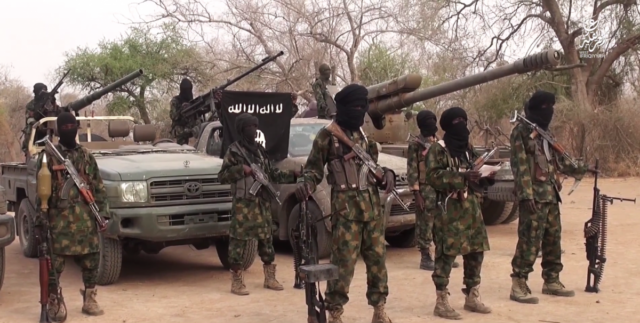
Pro-democracy and civil rights advocacy group HUMAN RIGHTS WRITERS ASSOCIATION OF NIGERIA (HURIWA) has condemned the Federal government for permitting some states in the North-west to negotiate the so-called peace agreement with terrorists, criminal gangs and armed kidnappers, just as the Rights group said the negotiations have undermined and eroded the key elements of Nigeria’s statehood.
HURIWA blames the ambiguities of the Federal government on how to deal decisively with armed brutes killing thousands of Nigerians for the expanding frontiers of terrorist attacks and the unprecedented insecurity in many parts of Nigeria. “Since the Federal Government is creating the impression that it is open to dialogue with terrorists, then more and more desperate criminals would escalate their criminal activities, hoping that they too would merit an invitation for dialogue by the current administration that is already discussing with terrorists in the North West for the so-called peace.
Criminal gang members who are watching the dialogue sessions with terrorists in the North West will automatically become daring and bloody so as to gain attention of the government that is too weak to militarily defeat terrorists and very willing to enter into negotiations for the so-called truce.”
HURIWA which expressed the position that any public office holder or private individual who negotiates with terrorists is also a terrorist, has therefore called on President Bola Ahmed Tinubu to stop the disgraceful surrendering of the Nigerian state to the whims and caprices of a motley crowd of armed bandits, bloodstained terrorists, armed kidnappers and criminal gangs in Katsina and some other states in the Northern States of Nigeria.
HURIWA said there is no doubt that what have played out in the last couple of weeks in Katsina, Zamfara and other places in the North West of Nigeria in the guise of local and state governments negotiating with terrorists for the so-called truce, amounted to the demolition of the four fundamental elements that qualifies Nigeria as a Sovereignty even as HURIWA postulated that the state as a person of international law should possess the following qualifications: (a) a permanent population (people); (b) a defined territory; (c) government (political authority); and (d) capacity to enter into relations with the other states (diplomat recognition or sovereignty).
HURIWA which condemned the negotiations with terrorists, said the impression being created globally with these charades going on in Katsina by way of negotiations for peace with terrorists responsible for killings of dozens of citizens is that Nigeria has gradually lost those key elements of statehood. HURIWA also stated that the negotiations have completely rubbished the determination of the families of victims of terrorism from achieving any sort of closure and justice for the terminations of the lives of their loved ones and the losses of livelihoods they suffered as a result of terrorist attacks.
HURIWA asked rhetorically thus: “Is it not preposterous that whilst the president Tinubu’s government has sanctioned negotiations with terrorists that are wanted by advanced and sophisticated nations such as the United States, the same administration sent out the Vice President Kashim Shettima to the United Nations General Assembly in New York to canvass that Nigeria be made a permanent member of the security council of the United Nations?
“Is this not a pathetic irony to openly demonstrate to the World that Nigeria’s statehood is eroding fast, as demonstrated by the show of shame called peaceful negotiations with terrorists who attended the so-called truce meetings in Katsina state, wielding some of the most sophisticated weapons of mass destruction and other combat weapons of military grades?
Has this government in Nigeria no shame and has the government no respect for the constitution of the Federal Republic of Nigeria? We insist that terrorists must be made to face the full wrath of justice, just as we believe that government is obliged to take justice to terrorists or bring terrorists to justice for their crimes of bloodshed and destruction of livelihoods of Nigerians.
HURIWA recalled that authorities in Nigeria’s northwestern Katsina state reportedly struck a so-called peace deal with criminal gangs in what it says is an effort to end years of violence, a government official confirmed to the media.
HURIWA recalled that Katsina is one of several states in northwestern and central Nigeria terrorized by criminal gangs that the locals refer to as bandits. The federal government, through the Defence Headquarters, had previously declared the leaders of the terrorists groups now negotiating with government as terrorists, even as huge amounts of money was promised as rewards for information leading to their arrests.
HURIWA wondered the logic in negotiating with criminal gangs that continuously raid villages, rape girls and children, kill and abduct residents, as well as torch homes after looting them.
HURIWA recalled that the terrorists and criminal gangs maintain camps in a huge forest straddling Zamfara, Katsina, Kaduna states in the northwest region and Niger state in the country’s central zone and have carried out mass kidnappings of students from schools in recent years.
HURIWA recalled that the Katsina State Government confirmed that a dozen bandit kingpins met with local officials and community leaders in the town of Danmusa, where they renounced violence and pledged to turn a new leaf, Nasiru Mu’azu, Katsina state internal commissioner said.
“There was a peace meeting between 12 bandit leaders and the local community leaders in Danmusa, where the bandits renounced their criminal activities and committed to peace,” Mu’azu said.
The bandits initiated the meeting, he said. “The community welcomed the overtures and agreed to a peace deal as long as the bandits are genuinely interested in peace,” he said.
Katsina state government stated that as a mark of goodwill, the bandits surrendered weapons and released 17 hostages, with the promise to free more people they were holding.
HURIWA said security experts have cautioned against any sort of appeasement of terrorists because, as criminals with zero ideological leaning, the bandits are motivated by financial gains, but their increasing business and operational alliance with jihadists from the northeast has been raising concern among government officials, which is the reason for the illegal negotiations with terrorists.
HURIWA pointed out that in 2023, Katsina state governor Dikko Umar Radda established Katsina Community Watch Corps, comprising around 2,000 vigilantes to assist the military and police in fighting the bandits.
“We have been fighting the bandits for the past two years, and the state governor has reiterated he will not negotiate from a position of weakness,” Mu’azu, the Katsina state official said.
In the media statement by the National Coordinator, Comrade Emmanuel Nnadozie Onwubiko, HURIWA reiterated its position of zero tolerance for any sort of negotiations with terrorists because that would amount to state surrender.
“We are asking President Tinubu to stop these acts of treason in the name of negotiations with terrorists. We believe that no matter the quantum of cash paid out to these terrorists now dialoguing with Katsina and other Northern governments, the moment the blood money finishes, these terrorists who are already used to making hundreds of millions of blood money will simply return to their familiar terrains of terrorism and when they do return, they would be even more vicious than they are now.”
COMRADE EMMANUEL NNADOZIE ONWUBIKO,
NATIONAL COORDINATOR,
HUMAN RIGHTS WRITERS ASSOCIATION OF NIGERIA (HURIWA).
MONDAY SEPTEMBER 29TH 2025.
News
Corruption Becoming Endemic Now: HURIWA Says
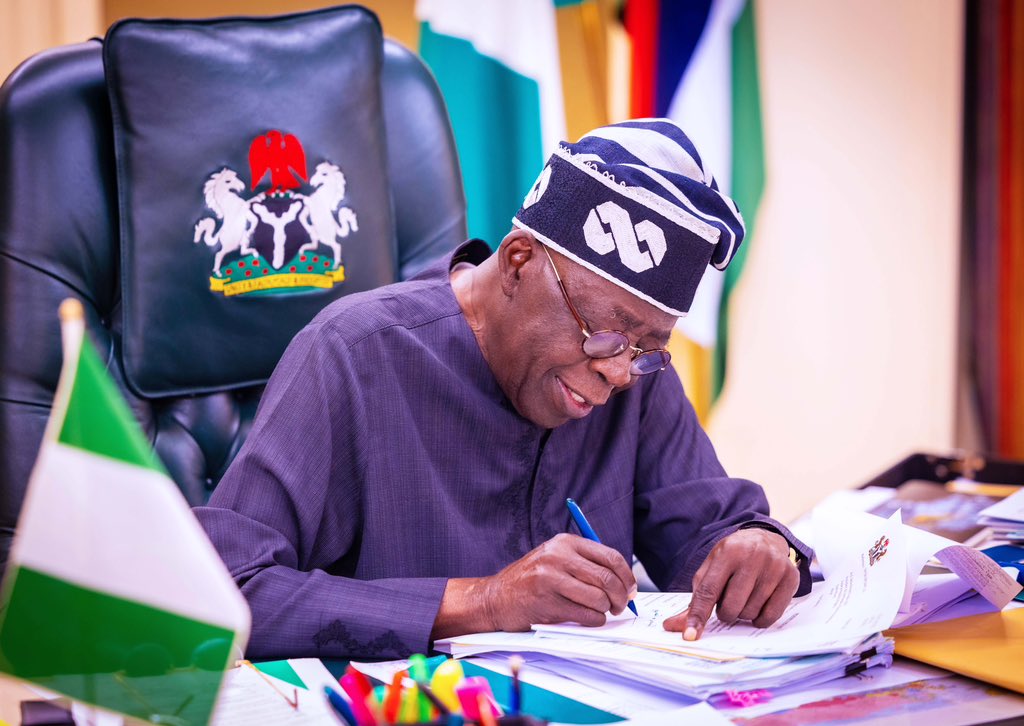
TASKS government on transparency in conditional cash transfer
Civil Rights advocacy Group HUMAN RIGHTS WRITERS ASSOCIATION OF NIGERIA (HURIWA) has expressed worry about the apparent inability of the Federal government to come clean on how N330 billion was disbursed to 8.1 million households without any compliance with the principles of transparency and accountability. “Most Nigerians are wondering whether this huge sum of public funds were shared to ghosts or to real citizens since these households are not known by millions of Nigerians.”
Besides, HURIWA has raised alarm that corruption is perceived to be so high within the government circles even as the Rights group said it was wrong for President Tinubu to keep silent in the face of mounting accusations of corruption affecting some of his appointees including the allegations of acquisitions of exotic housing assets by the Minister of the Federal capital territory Mr. Nyesom Wike with allegedly looted public funds.
HURIWA recalled that the federal Government had few days ago, announced that it has disbursed a total of N330bn to 8.1 million households across the country under the National Social Safety Net Programme, aimed at cushioning the harsh effects of economic reforms on Nigeria’s poorest and most vulnerable citizens.
The disclosure was made in Abuja by the Minister of Finance and Coordinating Minister of the Economy, Wale Edun, after a review meeting of the Special Presidential Panel on Social Investment, inaugurated by President Bola Tinubu in February.
Edun explained that the programme, which experienced delays earlier in the year, was now firmly back on track following the successful integration of biometric data through the National Identification Number. This integration, he said, was crucial to ensuring transparency, curbing leakages, and eliminating political interference.
According to the minister, out of the 19.7 million households captured in the National Social Register—representing about 70 million Nigerians—8.1 million households have already received at least one tranche of the N25,000 stipend. Some beneficiaries have received two or three payments depending on verification outcomes.
Reacting to the widespread failure of the Federal Government to evidently show believable proof of how this humongous cash were disbursed and to clearly publicise the identities of these beneficiaries, HURIWA said it is shocking that a democratically elected government put in place by the people, could come up with such seemingly phantom claim to have distributed financial lifelines to some impoverished citizens without any concrete evidence.
In a media statement by the National Coordinator Comrade Emmanuel Onwubiko, HURIWA criticised the federal ministry of Finance and the Coordinating ministry for the Nigerian economy for issuing out the press statement making the claim that can’t be empirically verified just as the Rights group said over ten thousand members of the organisation spread across the Country has not reported knowing or hearing about any Nigerian poor citizens/households who benefitted from the cash redistribution by the federal government.
“We are challenging the Federal Ministry of Finance and the Coordinating Minister of the Economy to prove to Nigerians that his ministry paid out the sum of N330 bn to 8.1 million households by publishing on the website of the ministry and newspapers the identities of the beneficiaries, their locations and the number in each of the benefiting states or local government areas. This demand is made in good faith because we have been unable to see or know anyone out of this 8.1 million households that got the N25,000. As citizens of Nigeria, we are entitled to be adequately informed because the methodology said to have been adopted by the government in redistribution of this taxpayers’ money is opaque and lacks ingredients of transparency and accountability.”
HURIWA is also urging President Bola Ahmed Tinubu to speak up about the growing accusations of corruption against some of his cabinet-level appointees one of which is the minister of the FCT.
HURIWA recalled that former presidential candidate of the African Action Congress (AAC) in the 2023 election, Omoyele Sowore, had petitioned the Attorney-General of Florida, James Uthmeier, demanding the forfeiture and prosecution of alleged multi-million-dollar properties secretly acquired in the United States by the Minister of the Federal Capital Territory, Ezenwo Nyesom Wike.
In a petition signed by his counsel, Deji Adeyanju, dated September 22, Sowore alleged that Wike, alongside his wife, Justice Eberechi Suzzette Nyesom-Wike of the Nigerian Court of Appeal, unlawfully purchased three lakeside properties in Winter Springs, Florida, worth over $6m.
The petition claimed the acquisitions were “conducted entirely in cash, thereby circumventing banking oversight and raising significant money laundering concerns.”
According to the documents, the properties include 113 Springcreek Lane, purchased for $535,000 and transferred to Jordan Wike; 209 Hertherwood Court, purchased for $459,157 and transferred to Joaquin Wike; and 208 Hertherwood Court, purchased for $465,000 and transferred to Jazmyne Wike.
The petition stressed that Wike, “a career politician with no record of legitimate private enterprise,” could not have earned the income to fund such acquisitions, adding that the assets were not declared to Nigeria’s Code of Conduct Bureau in violation of constitutional obligations.
Sowore, in his petition, stated that, “The evident pattern in this case involves large cash acquisitions by a long-serving public officer with no legitimate private earnings, the immediate transfer of title to his children, and the concealment of true beneficial ownership.
HURIWA said: “Whilst we await the decision of the foreign entity regarding the petition said to have been sent to them, accusing the minister of FCT of illegally buying up juicy housing assets in the USA using allegedly looted public funds. But we expect that when such a very weighty accusations are made consistently against a serving minister, the President ought to publicly make a statement regarding what the position of his government is especially given that the President told the World in Brazil that his administration is waging a relentless war against corruption.”
“We know that when accusations of corruption was made by the then minister of Humanitarian Affairs and Poverty Alleviation, President Tinubu suspended and thereafter fired the minister from her duty. Nigerians expect that since nobody is above the law, when accusations of corruption are made against a Nigerian public office holder, the appointing authority is expected to weigh in one way or the other so the citizens are assured of the government’s commitment to the war against corruption. The President should also direct the Minister of Finance to furnish Nigerians with verifiable evidence to prove that government actually disbursed N330 billion to some poor households”.
-

 News10 months ago
News10 months agoNUJ FCT Council Mourns The Loss of Senior Journalist, Isaiah Abraham
-
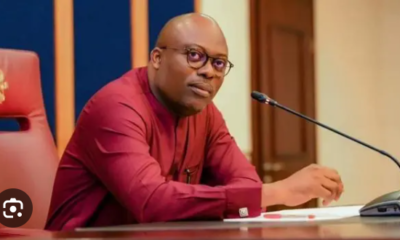
 News10 months ago
News10 months agoHURIWA Declares Governor Fubara’s Emergence as Divine, Urges Support for Rivers State’s Progress
-
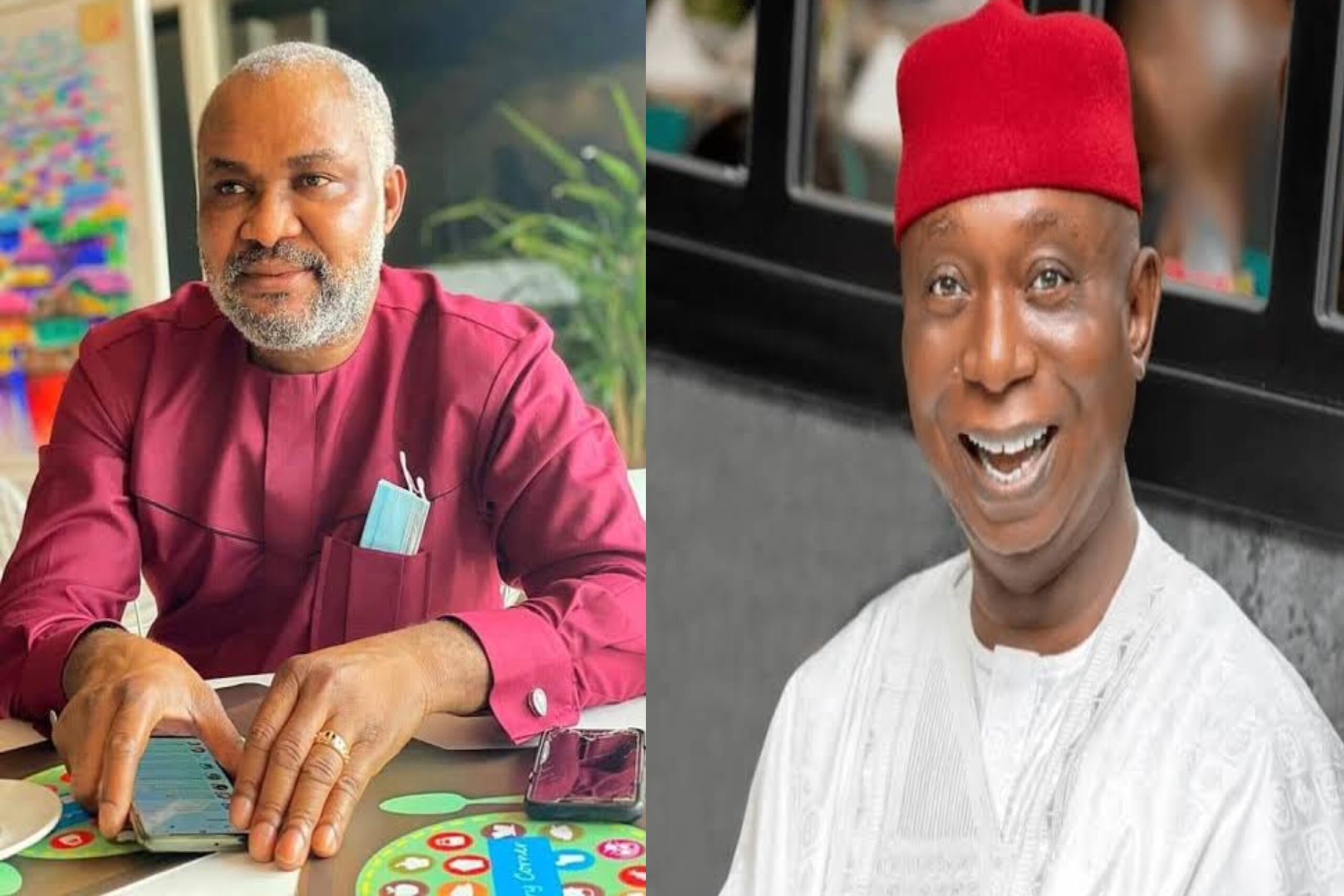
 News10 months ago
News10 months agoAnioma State as panacea to South-East marginalization – By Emmanuel Onwubiko
-

 Opinion8 months ago
Opinion8 months agoNIGERIAN WOMAN IN DIASPORA, CULTURAL SHOCKS – By Stacey Ukaobasi Onwuegbuchulam
-
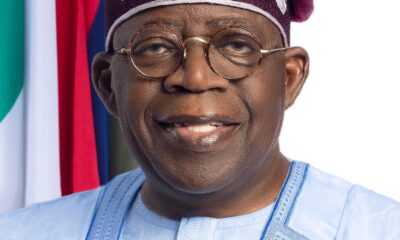
 News11 months ago
News11 months agoHURIWA Blames Serial Stampedes on Weaponized Poverty, Warns of Nigeria’s Rapid Decline
-
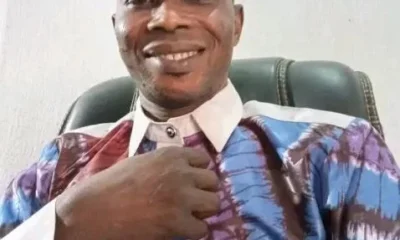
 News10 months ago
News10 months agoJealous Husband Stabs Nigerian Bishop To Death Over Suspicion Of Sleeping With Estranged Wife
-
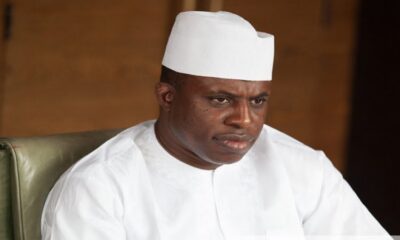
 News10 months ago
News10 months agoTinubu sympathizes with ex-speaker Bankole on the death of his mother
-
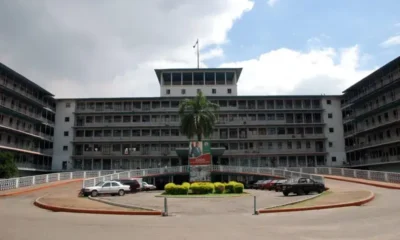
 Health8 months ago
Health8 months agoA complete list of 154 healthcare facilities across Nigeria that provide free emergency obstetric care and VVF (Vesico-Vaginal Fistula) surgeries.


